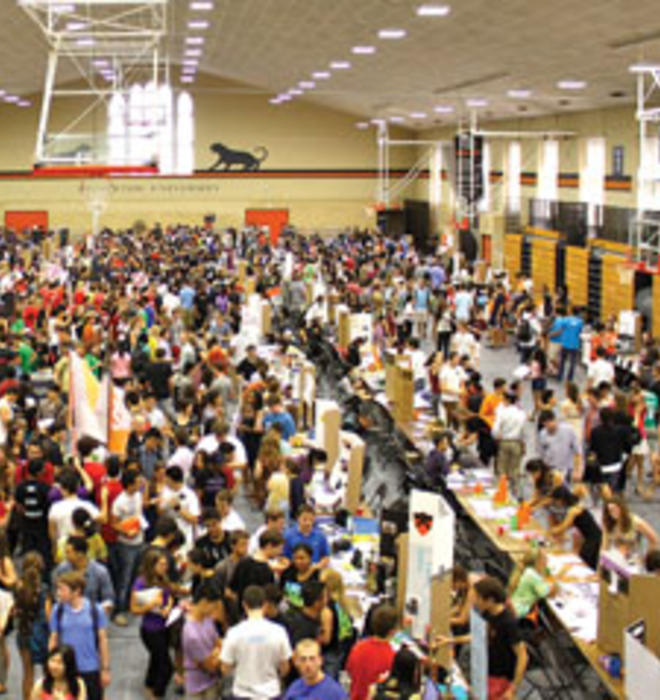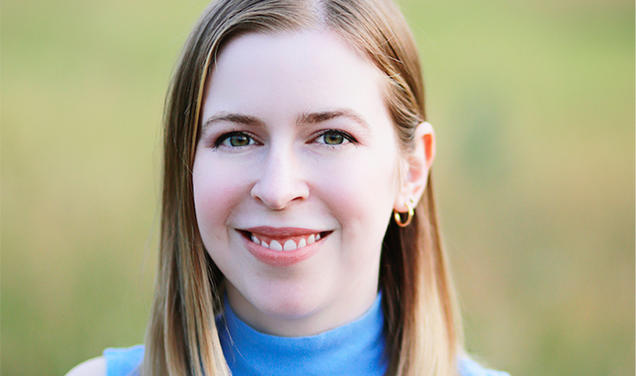
A few years into Shirley Tilghman’s tenure, Powell Fraser III ’06, then a junior majoring in politics, called on fellow students to rebel “against a sea of sobriety!” — or, more generally, against Nassau Hall’s “War on Fun.” There were, he wrote in a series of articles in The Daily Princetonian, too many acts of aggression to ignore: increased enforcement of alcohol regulations, substance-free housing contracts for the best party suites, tension with the eating clubs, and a crackdown on the Greeks. “Flash forward to the year 2010,” he exhorted his readers back in 2005. “‘The Zoo’ has been renamed ‘The Arboretum’ and is a flourishing study-group site. The rowdiest eating club on the Street has been converted into a Writing Center. ... At least no one feels left out anymore, but fun is dead for everyone.”
Well, maybe not.
Someone standing outside 1879 Arch on a typical Friday evening in 2013 might see students heading toward parties at the eating clubs, a dance recital at one of the residential colleges, a play at Theatre Intime, or perhaps a campus-wide concert. The difference from previous years is that the flow of traffic no longer runs just from campus to Prospect Avenue. For a significant number of today’s undergraduates, it need not flow to the clubs at all.
Social options, particularly the relationship between the University and the clubs, have bedeviled Princeton presidents since Woodrow Wilson 1879. Tilghman didn’t try to eliminate the clubs, as some of her predecessors did, but she did provide students with other choices. The results, recommended by a series of task forces, committees, and working groups, have transformed the campus social scene.
The biggest change has been the opening of Whitman, Mathey, and Butler as four-year residential colleges — a plan initiated before Tilghman took office. Most upperclass students still join clubs, but others may choose to remain in a residential college — and anyone who buys a shared meal plan can eat in both places. As the colleges have grown, they have become social centers in their own right, hosting a range of clubs and arts groups and fostering interaction among classes. Tilghman told the Prince in September that designating only three of the residential colleges as four-year colleges might have been a mistake: “If I could be queen for a day ... I would love to create a system for undergraduates in which students were members of a residential college for all four years and every student would have an affiliation with an eating club, so it’s just part of the experience of every single Princeton student ... . ”
The clubs continue to thrive, along with other new and developing centers of social life. Although Campus Club closed in 2005 (and has since been taken over by the University), Cannon Dial Elm Club reopened in 2011. The Frist Campus Center, which opened under former president Harold Shapiro *64, has become a campus hub during Tilghman’s presidency. In 2006, the University opened the LGBT Center and, in 2009, a revamped Carl A. Fields Center for Equality and Social Understanding.
“Campus seems more ‘socially fluid’ to me than when I first arrived in ’99,” writes Thomas Dunne, the deputy dean of undergraduate students, in an email; “students move seamlessly through the clubs, social centers like Frist and Campus Club, and the residential colleges.” Dunne lists a number of other innovations, from the freshman “Pre-rade” to the campus-wide dodgeball tournament and the Orange and Black Ball.
But Tilghman’s tenure also was marked by the ban on freshman rush by Greek organizations, which she endorsed as a way to give students time to explore as many social options as possible during their first months on campus. That decision continues to be controversial: “I understand what President Tilghman’s intention is, but I also feel that the University does not understand where the Greek organizations are coming from,” says Cuauhtemoc Ocampo ’14, former president of Sigma Chi. (He and other students say the Greeks are complying with the ban, but that Greek life continues to be strong.)
Alec Egan ’13, former president of Cap and Gown and the Interclub Council, says the changes he has seen during his four years have been positive. “It seems that people can choose more of their own path in terms of the Princeton experience.”





0 Responses